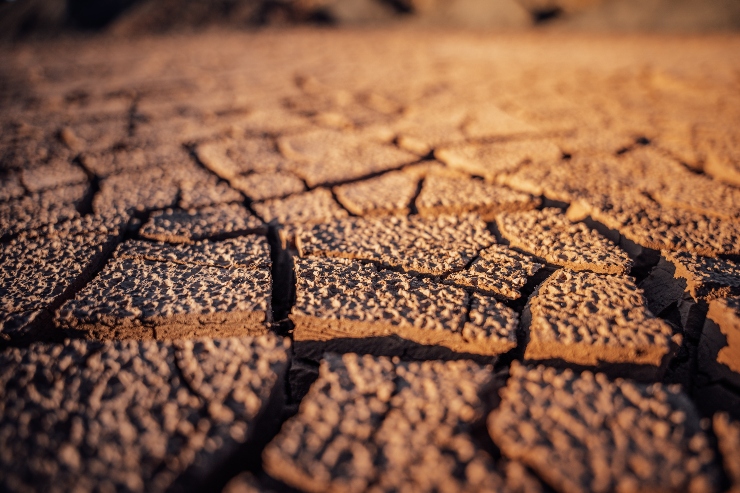As the climate clock ticks, history can help us see how different peoples affronted previous environmental tipping points. Alessio Terzi advocates for a “green growth” strategy as a way out of the crisis. He says no civilisation has ever solved its problem with the voluntary scarcity of “degrowth”.
When I was a child, one of my favourite movies was The Time Machine, a Hollywood blockbuster loosely adapted from the 1895 homonymous novel by English writer H. G. Wells. The protagonist, a late 19th century inventor, develops a device, which is then used to travel across time to answer some deep questions about life and death. While trying to answer an equally fundamental question, namely how our civilisation can avoid a catastrophic collapse due to climate change, it is worth engaging in a similar exercise of time travel, albeit only as a thought experiment.
Imagine travelling back to mid 18th-century England. You’d soon discover that a debate is raging about what to do: the country is running out of trees following decades of aggressive deforestation. Some say this will spell the collapse of the nation, given oak is fundamental for shipbuilding and the island will soon be defenceless at sea, not to mention that charcoal (a by-product of wood) is widely used for heating and energy.
You decide to spin the clock on your time machine once further, and you get teleported to the 17th century, this time on Easter Island. After decades of pressure on their environment, the local indigenous people, the Rapa Nui, are experiencing a cascade of catastrophic events. As deforestation is almost complete, ecosystems are collapsing, food and water are proportionately diminished, and wood, one of the fundamental raw materials in this civilisation, is scarce.
You return to the 21st century, only to realise the evident parallels. This time it is not wood we are running out of, but rather our so-called ‘carbon budget’, or else the total amount of greenhouse gasses we can continue pumping into the atmosphere before Earth’s average temperature rises above 2 degrees Celsius. At that point, there is a high likelihood that key tipping points are crossed, such as the collapse of Greenland’s ice cap, which would imply huge sea level rises and disasters of catastrophic proportions.
You therefore consult a few history books to see how the story ended in England and on Easter Island. In the first case, innovation saved the day. In particular, a switch from charcoal to coal reduced the demand for wood in energy generation. Eventually, the Industrial Revolution and the invention of (cheap) steel implied that ships would no longer be built with wood. Civilisational collapse was avoided, and soon after Britain’s forest started to grow back again. Easter Island was not equally lucky, as reported in Jared Diamond’s book with an ominous title: Collapse. Failure to develop alternative technologies implied the limited resources available became a matter of infighting between different groups of Rapa Nui, leading to warfare and population collapse.
Armed with this knowledge, you are then ready to read through the current debate between different approaches to stave off climate disaster. For some, so-called “green growth” advocates like myself, the solution must chiefly go through the development of new carbon-neutral technologies. This can be a substitution of fossil fuel sources for renewables, such as wind and solar, opening up new opportunities for progress. For others, “degrowth” champions, we should effectively embrace scarcity in a voluntary and permanent manner, while realising that happiness should not to be found in material possessions. This would imply sharing better what is left available, both within and between countries.
I let the reader form their own opinion when charting the path ahead. But I will only point out that, going beyond the specific cases mentioned above, various civilisations have found themselves at these turning points in their histories, from the Maya to Ancient Rome, from feudal Japan to the Khmer Empire of Angkor. Some of these challenges were environmental or climatic in nature, others were not. Some survived, others collapsed. But absolutely no civilization solved its problems relying on the wishful thinking of voluntary scarcity, the uplift above economic materialism, and moral improvement. I see no reason why this time would be different.
♣♣♣
Notes:
- This blog post represents the views of its author(s), not the position of LSE Business Review or the London School of Economics.
- Featured image by Cassie Matias on Unsplash
- When you leave a comment, you’re agreeing to our Comment Policy.





